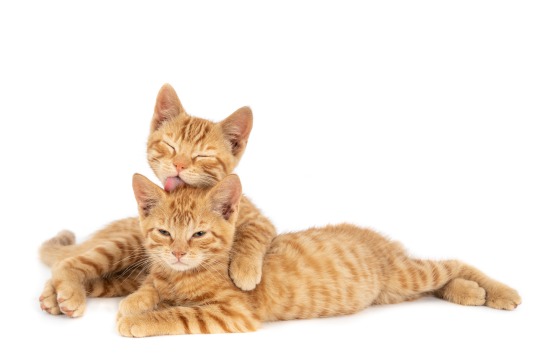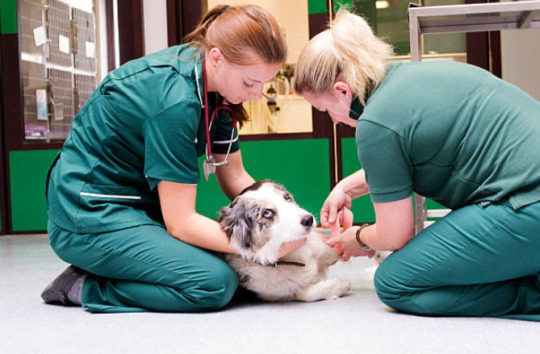Text
0 notes
Video
youtube
Dhanwan Seth aur Sone Ke Bartan| Hindi Kahani| Moral Stories| Hindi Stories
#animatedstories#moralkahaniya#moral stories for kids#dreamtoon#bedtimestories#Moral Story#Moral Story of fairy Tales
0 notes
Text
0 notes
Text
0 notes
Text
0 notes
Text
0 notes
Text
0 notes
Text

Do You Know?
These Interesting Facts about Budgerigar
0 notes
Text
Best Pet Fish as a Beginner-Pets devotee
When it comes to choosing a pet fish for beginners, there are several species that are known to be hardy, low-maintenance, and adaptable to different aquarium conditions. Here are some of the best options:

Betta Fish (Siamese Fighting Fish): Betta fish are popular due to their vibrant colors and long, flowing fins. They are relatively easy to care for and can be kept in smaller tanks. However, it's important to keep them individually as they are aggressive toward other bettas. It is one of the best fish for pets
Goldfish: Goldfish are classic beginner fish and are available in various colors and shapes. They require a larger tank with good filtration and appreciate colder water temperatures. Keep in mind that goldfish produce a significant amount of waste, so regular maintenance is necessary.
Platies: Platies are small, peaceful fish that come in a variety of colors. They are easy to care for, adapt well to different water conditions, and can be kept in community tanks. They are also prolific breeders, so be prepared for potential fry.
Swordtails: Swordtails are similar to platies and are known for their elongated lower fins. They are relatively hardy and adaptable, making them suitable for beginners. Like platies, they are livebearers, which means they give birth to live young.
Corydoras Catfish: Corydoras catfish are bottom-dwelling fish that are great for keeping the aquarium clean. They are social and should be kept in groups of at least six. Corydoras catfish are hardy and can tolerate a wide range of water conditions.
Remember, regardless of the species you choose, it's important to research their specific care requirements, provide them with a suitable environment, and maintain a healthy and clean aquarium. Regular feeding, water changes, and monitoring of water parameters are essential for the well-being of your fish.
0 notes
Photo

Common behavioral issues in cats
Cats, like any other pets, can exhibit various behavioral issues. These issues can range from mild annoyances to more severe problems that require professional intervention. Here are some common behavioral issues in cats
https://www.petsdevotee.com/blog/dont-underestimate-these-common-behavioral-issues-in-cats/
0 notes
Text
Preparing for Pets Health Emergencies
Preparing for pet health emergencies is an important part of being a responsible pet owner. Here are some steps you can take to be prepared:
Find a reputable veterinarian: Research and establish a relationship with a trusted veterinarian in your area. Make sure they offer emergency services or have a referral network for emergencies outside regular hours.
Know the location of emergency clinics: Identify the nearest 24-hour emergency veterinary clinics or hospitals in your vicinity. Keep their contact information easily accessible.
Create a pet emergency contact list: Compile a list of important phone numbers, including your regular veterinarian, emergency clinics, poison control hotline, and any other relevant numbers. Keep a copy in your pet's first aid kit and store it in your phone or on your refrigerator.
First Aid Tips and Preparedness Guide for Dogs
Pet insurance or savings: Consider obtaining pet insurance or setting aside an emergency fund for unexpected veterinary expenses. This can help alleviate financial stress during emergencies.
Pet first aid and CPR training: Enroll in a pet first aid and CPR course to learn basic life-saving techniques. Knowing how to administer CPR, handle injuries, and perform basic first aid can be invaluable during emergencies.
Stock a pet first aid kit: As mentioned earlier, assemble a pet first aid kit with essential supplies for treating minor injuries and emergencies. Regularly check and replenish the supplies as needed.
Pet-proof your home: Conduct a thorough pet-proofing of your home to minimize the risk of accidents and injuries. Secure hazardous items, medications, toxic plants, and chemicals out of your pet's reach.
Identification and microchipping: Ensure your pet has proper identification, such as a collar with tags containing your contact information. Consider microchipping your pet as a permanent form of identification.
Familiarize yourself with common pet hazards: Learn about common household hazards and foods that can be toxic to pets. Keep potentially harmful substances safely stored and be cautious about what your pet has access to.
Have a pet carrier or travel crate: Keep a pet carrier or travel crate easily accessible. In emergencies, it may be necessary to transport your pet safely and securely.
Create a pet emergency plan: Develop a plan for what to do in various emergency situations. Assign roles and responsibilities to family members, establish evacuation routes, and identify pet-friendly accommodations if needed.
Remember, in case of a serious or life-threatening emergency, it is crucial to seek immediate veterinary care. Your veterinarian and the professionals at emergency clinics are the best resources to handle critical situations and provide appropriate treatment for your pet.
0 notes
Text
Proper Dog Hygiene: Do's and Don'ts
Proper dog hygiene is essential for their health and well-being. Here are some important do's and don'ts to keep in mind when it comes to maintaining your dog's hygiene:

Do's
Do groom your dog regularly: Brush their fur, trim their nails, and clean their ears as needed. Regular grooming helps keep their coat clean, prevents matting, and promotes healthy skin.
Do bathe your dog when necessary: Regular baths are important, but excessive bathing can strip their skin of natural oils. Follow your veterinarian's recommendations for bathing frequency based on your dog's breed, coat type, and activity level.
Do brush your dog's teeth: Brushing your dog's teeth regularly with a dog-specific toothbrush and toothpaste helps prevent dental issues such as tartar buildup and gum disease. Start dental care early to get your dog accustomed to the process.
Do use dog-specific products: Use grooming and cleaning products specifically formulated for dogs. Human products may contain ingredients that can be harmful to dogs, so it's important to choose dog-safe options.
Do keep your dog's living area clean: Regularly clean your dog's bedding, toys, and food and water bowls to prevent the buildup of dirt, bacteria, and odors. Use pet-friendly cleaners and wash items as recommended.
Do provide proper nutrition: Feed your dog a balanced diet that meets their nutritional needs. Good nutrition supports their overall health, including their coat, skin, and immune system.
Do maintain regular veterinary check-ups: Schedule routine visits to the veterinarian for vaccinations, examinations, and preventive care. Regular check-ups help identify any health issues early on and ensure your dog's well-being.
Know more: Essential Hygiene Tips for Dog Owners
Don'ts
Don't over-bathe your dog: Excessive bathing can strip their skin of natural oils, leading to dryness and irritation. Stick to a bathing schedule recommended by your veterinarian.
Don't use human products on your dog: Human shampoos, conditioners, and cleaning products may contain ingredients that are harmful to dogs. Use products specifically designed for dogs to avoid any potential issues.
Don't neglect dental care: Dental health is crucial for your dog's overall well-being. Avoid ignoring dental care, as it can lead to oral infections, pain, and other health issues.
Don't ignore signs of skin or coat problems: Be vigilant for signs of skin irritation, redness, itching, or coat abnormalities. Address any concerns promptly by consulting with your veterinarian.
Don't ignore your dog's nails: Overgrown nails can cause discomfort and problems with mobility. Regularly trim your dog's nails or have them trimmed by a professional if you're not comfortable doing it yourself.
Don't skip preventive care: Ensure your dog receives appropriate vaccinations, parasite control, and preventive medications. These measures help protect against common diseases and parasites.
Remember, every dog is unique, so it's important to consider their specific needs and consult with your veterinarian for personalized advice on maintaining their hygiene and overall health.
1 note
·
View note
Text

0 notes
Text
0 notes
